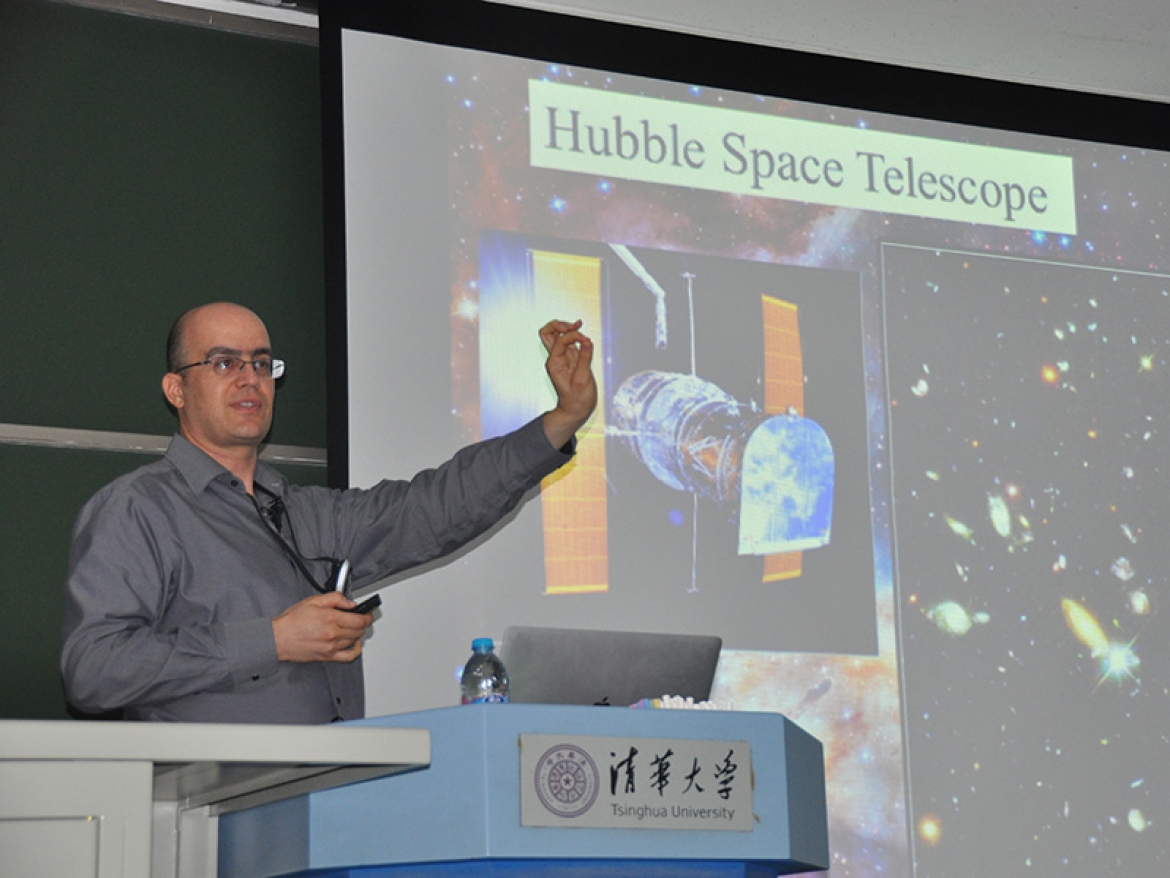Dark Matter and the First Stars in the Universe
The 23rd "New Worlds, New Horizons" Public Astronomy Lecture took place at Ming Li Building, Tsinghua University on Sept 28th, 2018. It was delivered by Prof Rennan Barkana from Tel Aviv University on dark matter and how it's implicated in observations of the first stars in the Universe. The lecture attracted over 200 listeners from various backgrounds, apart from about 6000 online viewers via Tencent News live broadcast.
Prof Barkana started by looking back on how people in history measured the composition of celestial objects with spectrum and how the notion of dark matter was devised to account for a large portion of observed rotation velocity of distant stars. He made an analogy that the proportion of ordinary matter was like the icing on the cake. With further explanation of cosmic microwave background as the afterglow of the Big Bang, he then shifted to the topic of first stars, whose appearance caused the early universe to reionize. With respect to the theoretical predictions on the amount of absorption of radiation of first stars by intergalactic gases, he then recalled how he was referred to when the EDGES data came out showing drastic absorption by extremely cooled gas. The cooling might be due to collision with minimally charged light-weight dark matter particles. Towards the close of his speech, he made a point that the issue of dark matter was still an open topic and more data were awaited before we could say anything for sure, and quoted Richard Feynman that we are lucky to live in an age when there are discoveries yet to be made. The lecture ended with the professor answering questions from the audience.



